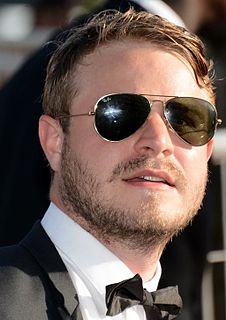A Quote by Al Yankovic
I did have a child, and I was reading a lot of picture books to her, but at the same time writing a children's book was something that I'd been wanting to do for many years, pretty much since the start of my career.
Related Quotes
I hope to encourage more children to discover and love reading, but I want to focus particularly on the appreciation of picture books…. Picture books are for everybody at any age, not books to be left behind as we grow older. The best ones leave a tantalising gap between the pictures and the words, a gap that is filled by the reader's imagination, adding so much to the excitement of reading a book.
I have always been a reader; I have read at every stage of my life and there has never been a time when reading was not my greatest joy. And yet I cannot pretend that the reading I have done in my adult years matches in its impact on my soul the reading I did as a child. I still believe in stories. I still forget myself when I am in the middle of a good book. Yet it is not the same.
It's strange: I've done so many things up until I did 'Obvious Child,' including writing children's books and making 'Marcel the Shell.' To me, the through-line is incredibly clear: it all comes from wanting to be connected to my own inner voice and not wanting to be on somebody else's agenda if that means that I can't be myself.
I think I'm still fed by my childhood experience of reading, even though obviously I'm reading many books now and a lot of them are books for children but I feel like childhood reading is this magic window and there's something that you sort of carry for the rest of your life when a book has really changed you as a kid, or affected you, or even made you recognize something about yourself.
I feel lucky that I read so many books as a kid because I know that no matter how much I appreciate a book now, and I can love a book very much, it's never going to be that childhood passion for a book. There's some element, something special about the way they're reading books and experiencing books that's finite.
While I was writing the book, one of my children was diagnosed with dyslexia. Dyslexia is a very tiny word for a wide-ranging neurological condition that affects different people in different ways. But I was reading an awful lot about it, to try and find ways of helping my child. I think a lot of fiction comes from this desire to confront unanswerable questions, and it's heartbreaking to see your child, a bright child, struggling so much with something that others are finding so easy. It's such an assault to the child's self-esteem and, as a mother, it's hard to watch.
Writing my own stories had always been one of my dreams, but I didn't start until I was 29. I was working in a book warehouse and was assigned to the third floor where all the children's books were. For four and a half years, I spent all day, every day around children's books, and it wasn't long before I fell in love with them.
The process for writing a picture book is completely different from the process of writing a chapter book or novel. For one thing, most of my picture books rhyme. Also, when I write a picture book I'm always thinking about the role the pictures will play in the telling of the story. It can take me several months to write a picture book, but it takes me several years to write a novel.
You write a book, it's out for however many years, and with the passing of time, you're not the same person. I'm not the same person I was when I wrote those books; I'm not even the same person I was when I started writing 'Beg.' I had many shifts spiritually, and one of them was in the use of language.

































